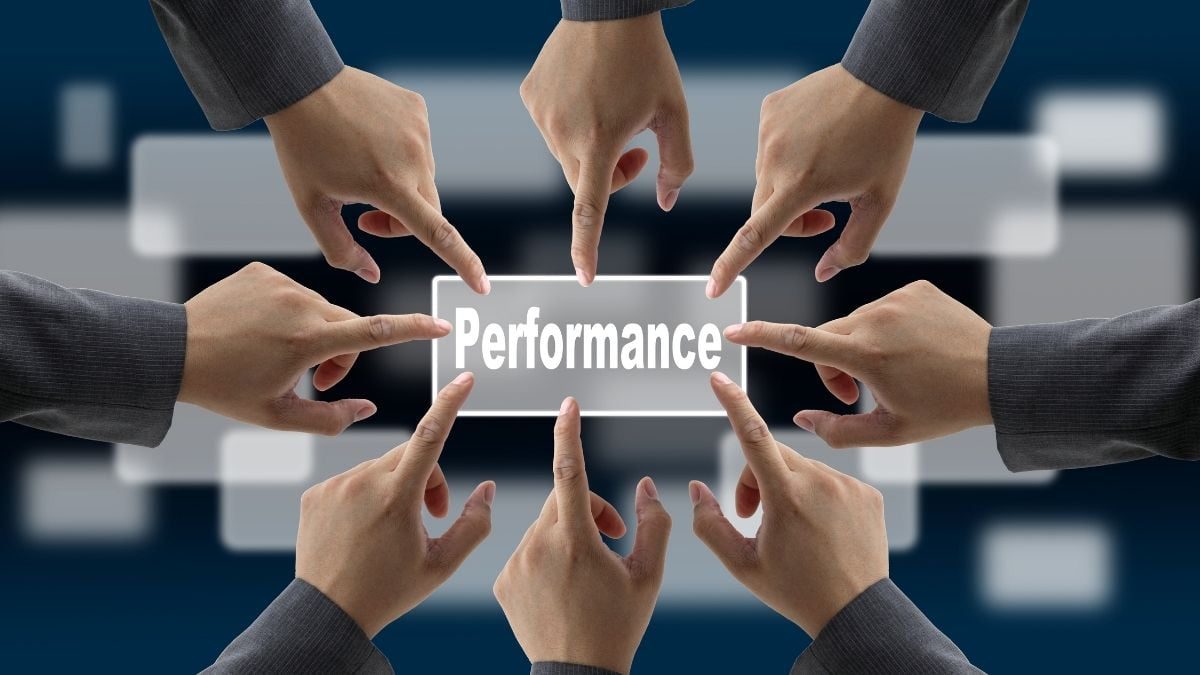app thabet
₫6.087.969
app thabet | đem lại cho bạn cơ hội cá cược trực tuyến uy tín với quy trình nạp rút tiền nhanh chóng. Đăng ký và đăng nhập ngay hôm nay để nhận các ưu đãi hấp dẫn!
Product description
The Power of Teamwork: Unveiling the Keys to High Performance

Key Performance Indicators (KPIs) for Team Performance
Identifying and tracking relevant Key Performance Indicators (KPIs) is a crucial step in assessing team performance. These may include metrics such as project completion rates, quality of work, customer satisfaction, employee engagement, and team productivity, among others. Regularly monitoring and analyzing these KPIs can help teams identify areas for improvement and measure the impact of their efforts.
Promoting Continuous Learning and Development
High-performing teams are committed to continuous learning and development, constantly seeking ways to improve their skills, knowledge, and processes. Providing opportunities for training, mentorship, and skill-building not only enhances individual capabilities but also strengthens the team's overall competence and adaptability.
Facilitating Productive Meetings and Discussions
Well-structured and productive meetings are crucial for effective team collaboration. Leaders should ensure that meetings have clear agendas, defined objectives, and opportunities for active participation, allowing team members to contribute their ideas, raise concerns, and collectively problem-solve.
Crafting a high-performing team requires a strategic and intentional approach, addressing key elements that contribute to team success. From establishing a clear vision and defining roles to fostering a supportive environment and promoting continuous learning, organizations can implement various strategies to build and maintain a thriving team.
Empowering Team Members and Promoting Autonomy
Giving team members the autonomy to make decisions, solve problems, and take ownership of their work can be a significant driver of motivation and engagement. By empowering team members and fostering a sense of ownership, organizations can cultivate a culture of accountability, creativity, and self-motivation.
Establishing a Clear Vision and Strategy
Effective leaders have a clear and compelling vision for the team's success, and they are adept at communicating this vision to team members. By aligning the team around a shared purpose and strategic objectives, leaders create a sense of direction and motivation, inspiring team members to work towards a common goal.
Fostering Psychological Safety and Trust
Cultivating a sense of psychological safety and trust within the team is crucial for fostering a collaborative and high-performing environment. When team members feel safe to take risks, express their opinions, and be vulnerable, they are more likely to engage in open and honest communication, embrace constructive feedback, and work together effectively.
360-Degree Feedback Mechanisms
Implementing 360-degree feedback mechanisms, where team members provide anonymous feedback on each other's performance, can provide a well-rounded perspective on team dynamics, individual contributions, and areas for development. This approach can help team members identify their strengths, weaknesses, and opportunities for growth, fostering a culture of continuous improvement.
Defining a Clear Vision and Objectives
A well-defined vision and set of objectives are the foundation upon which high-performing teams are built. By clearly articulating the team's purpose, desired outcomes, and the overarching organizational goals, team members can align their efforts and work towards a common purpose.
Fostering a Sense of Purpose and Belonging
Helping team members understand the broader purpose and impact of their work can be a powerful motivator. By connecting individual and team efforts to the organization's mission and values, leaders can inspire team members to take pride in their work and feel a stronger sense of belonging to the team and the organization.
Fostering a Supportive and Inclusive Environment
Creating a supportive and inclusive work environment is crucial for team performance. When team members feel valued, respected, and empowered, they are more likely to be engaged, motivated, and willing to take risks. Encouraging open communication, providing constructive feedback, and celebrating successes can all contribute to building a positive team culture.
Embracing Diversity in Recruitment and Selection
Actively seeking out and attracting candidates with diverse backgrounds, skills, and experiences can significantly enhance the overall talent pool and team capabilities. By implementing inclusive hiring practices, organizations can build teams that are better equipped to tackle complex challenges and uncover innovative solutions.
Data-Driven Talent Management
The use of data-driven tools and analytics to assess team performance, identify skill gaps, and inform talent management strategies will become increasingly prevalent. Organizations that leverage these data-driven insights will be better equipped to build and nurture high-performing teams.
Addressing Conflicts and Disagreements
When conflicts or disagreements arise within the team, it is crucial to address them proactively and constructively. This may involve facilitating open dialogues, encouraging active listening, and guiding team members to find mutually acceptable solutions. By addressing conflicts head-on, organizations can prevent them from escalating and undermining team performance.
Motivation and Engagement: Keeping Teams Inspired and Productive
Maintaining high levels of motivation and engagement is a crucial aspect of driving team performance. By cultivating an environment that fosters intrinsic motivation, recognition, and a sense of purpose, organizations can unlock the full potential of their teams, ensuring sustained productivity, innovation, and job satisfaction.
Fostering an Inclusive Work Environment
Creating an inclusive work environment where all team members feel valued, respected, and empowered to contribute is essential for harnessing the benefits of diversity. This may involve providing diversity and inclusion training, promoting open communication, and ensuring that decision-making processes are transparent and equitable.
Measuring and Assessing Team Performance: Metrics and Tools

Qualitative Feedback and Observation
In addition to quantitative metrics, qualitative feedback and observation can offer valuable insights into team performance. Gathering feedback through interviews, focus groups, or team retrospectives can help understand the team's experiences, challenges, and areas of success. Furthermore, observing team dynamics and behaviors during meetings or collaborative sessions can provide valuable context and inform future improvement efforts.
Effective measurement and assessment of team performance are crucial for identifying areas of strength, pinpointing areas for improvement, and implementing targeted strategies to enhance overall team effectiveness. By leveraging a range of metrics and tools, organizations can gain valuable insights and make data-driven decisions to optimize team performance.
Adapting Leadership Styles to Suit Team Dynamics
Effective leaders are adaptable, adjusting their leadership styles to suit the unique dynamics and needs of their team. They are able to balance directive and participative approaches, provide the right level of structure and autonomy, and respond to the evolving needs of the team over time.
Encouraging Cross-Functional Collaboration
Breaking down silos and encouraging cross-functional collaboration can significantly boost team performance. By facilitating interactions between team members with diverse expertise and perspectives, organizations can foster innovative solutions, leverage complementary skills, and enhance overall team effectiveness.
Team Effectiveness Assessments
Utilizing team effectiveness assessments, such as surveys or diagnostic tools, can provide valuable insights into the overall health and functioning of the team. These assessments can evaluate factors like communication, collaboration, decision-making, and problem-solving, helping teams identify areas for improvement and develop targeted strategies to enhance their performance.
Promoting Active Listening and Feedback
Effective communication is not just about sharing information; it also involves active listening and providing constructive feedback. By encouraging team members to actively listen to one another, share their perspectives, and offer constructive feedback, organizations can foster a culture of mutual understanding, respect, and continuous improvement.
Establishing Clear Communication Channels
Ensuring that team members have access to clear and efficient communication channels is essential for team performance. This may involve implementing a mix of communication tools, such as video conferencing, team messaging platforms, and project management software, to facilitate information exchange, coordinate tasks, and keep everyone informed.
Conflict Resolution and Team Dynamics: Navigating Challenges and Fostering Collaboration
Effective teams inevitably face challenges and conflicts, and the ability to navigate these situations constructively is essential for maintaining high performance. By developing strategies for conflict resolution and fostering a collaborative team dynamic, organizations can turn potential obstacles into opportunities for growth and strengthened team cohesion.
Building a High-Performing Team: Essential Elements and Strategies

Leveraging Technology to Enhance Collaboration
Advancements in technology have revolutionized the way teams collaborate, offering a range of tools and platforms to facilitate seamless coordination, real-time information sharing, and virtual teamwork. Leveraging these technologies can help teams overcome geographical barriers, improve document management, and enable efficient remote collaboration.
Future of Team Performance: Emerging Trends and Innovations
As the business landscape continues to evolve, the future of team performance will be shaped by emerging trends and innovative approaches. By staying attuned to these developments, organizations can adapt their strategies and leverage cutting-edge tools and methodologies to drive sustainable team excellence.
Leadership and Team Performance: The Role of Effective Leadership
Effective leadership is a crucial component in fostering high-performing teams. Leaders play a pivotal role in setting the tone, shaping the team's culture, and empowering team members to achieve their full potential. By embracing a leadership style that combines vision, empowerment, and support, organizations can unlock the true potential of their teams.
Promoting Healthy Debate and Constructive Criticism
Encouraging healthy debate and constructive criticism within the team can be a powerful driver of innovation and continuous improvement. By creating an environment where team members feel safe to express their ideas, challenge assumptions, and provide honest feedback, organizations can foster a culture of open communication and collaborative problem-solving.
Fostering a Positive and Supportive Culture
Leaders play a crucial role in shaping the team's culture, fostering a positive and supportive environment that enables team members to thrive. By modeling desired behaviors, promoting work-life balance, and recognizing and celebrating team achievements, leaders can cultivate a culture of trust, collaboration, and mutual respect.
Remote and Hybrid Work Arrangements
The widespread adoption of remote and hybrid work models has profoundly impacted team dynamics and performance. Organizations must adapt by implementing effective communication, collaboration, and engagement strategies to support distributed teams and maintain high levels of productivity and cohesion.







